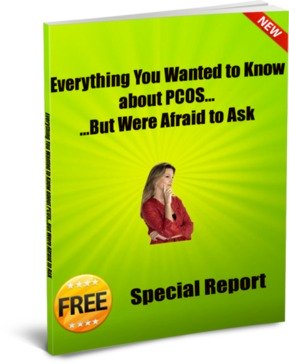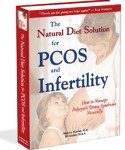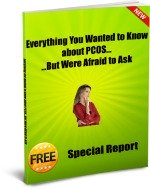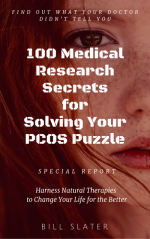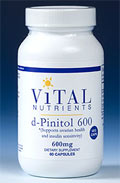PCOS Review Newsletter #140
2) Is PCOS Linked to Hearing Loss?
3) Eggs: Are They Good or Bad?
2) Is Polycystic Ovary Syndrome Linked to Hearing Loss?
Over the years, we've written articles about PCOS symptoms that many people are not aware of.
Here's a new one: possible hearing impairment. This is yet another reason to take polycystic ovary syndrome seriously.
Dumlupinar University School of Medicine in Turkey has just published a study of PCOS women that measured their hearing. They compared the hearing of 26 women with P C O S vs. 25 women who did not have the disorder.
The hearing thresholds for speech frequencies for all the women were within the normal range. However, the women with PCOS had more hearing loss in the high-frequency range than the other women.
This is another subtle indication that polycystic ovary syndrome affects your entire body and it's much more than just a little problem with your ovaries.
It's a very complex, chronic disorder of multiple hormones and other signaling molecules in your body. Some of them are probably affecting your inner ear and your hearing function.
PCOS is a long-term problem that requires a long-term solution. You may discover that you will need to do more than just take birth control pills.
Source:
Oghan F et al, Does hyperandrogenism have an effect on hearing loss in patients with polycystic ovary syndrome? Auris Nasus Larynx. 2011 Aug 20. [Epub ahead of print].
3) Eggs: Are They Good or Bad?
(Note: Eggs are an important source of protein in our recommended P C O S diet.)
Guest article by Dr. Michael Kane
We often will get questions about eggs. The most common is "How bad are eggs for you?" or "What effect does egg consumption have on cholesterol?" or "How many eggs can I have in a week?"
The studies on egg consumption have gone back and forth, at times implicating this high quality protein source in heart disease risk and at times getting the gold star for healthy nutrition.
A recent study done on eggs might shed some light on why there are conflicting recommendations. The basic conclusion is that the qualities of eggs depend on the diet of the chickens. In reality no surprise, but the quality of the chicken's diet has a tremendous effect on the quality of their eggs.
A recent study found that chickens fed a diet higher in omega-6 fatty acid produced eggs more likely to oxidize the LDL (bad) cholesterol and contribute to heart disease. This higher omega-6 fatty acid feed contained mainly corn and soy.
Conversely, chickens fed a diet of grains lower in omega-6 fatty acids and higher in omega 3 fatty acids (wheat, barley and milo) had a much reduced oxidation effect on LDL. The cost of these grains are higher. So you will be ending up paying more for eggs with higher omega 3 fatty acids. But it might be worth it, especially if you like your eggs.
Here's how to shop for eggs.
Most of the time you truly do not know what the diet is of the chickens producing the eggs. Some of our patients raise their own chickens but if you are shopping for eggs the best you can do is seek out local egg producers and ask them what grains they use for feed. In supermarket shopping there are some companies that advertise an omega-3 rich diet.
The other common concern about eggs is the quality of life that the chickens laying them have. Surveying the chickens themselves about their "life satisfaction scores" is out of the question. It is usually thought that caged chickens with little or no room to move are at a health disadvantage.
There are cage free or free range chickens- these are chickens that generally have more space to roam freely in a larger area. The ultimate in this regard is free range pasture fed chickens.
Comparing hens raised on pasture to commercial caged hens Mother Earth News reported:
"Our testing has found that, compared to official U.S. Department of Agriculture (USDA) nutrient data for commercial eggs, eggs from hens raised on pasture may contain:
- 1/3 less cholesterol
- 1/4 less saturated fat
- 2/3 more vitamin A
- 2 times more omega-3 fatty acids
- 3 times more vitamin E
- 7 times more beta carotene."
So the old adage "you are what you eat " applies to chickens as well. Shop wisely!
"Whatever is worth doing at all is worth doing well." -- Lord Chesterfield
PCOS Health Review
This free newsletter gives you original and immediately usable information to help you deal with PCOS.
Get the latest research, tips for improving your health, answers to questions, success stories, and more!
Your e-mail address is totally secure. We will never misuse your information.
Enter Your Email Above to Subscribe Today
and Get Your Questions Answered in this Free Special Report!
